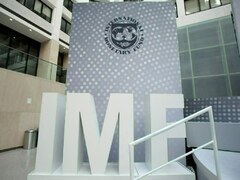Global Trade Tensions May Disproportionately Affect Pakistan: IMF
ISLAMABAD: Amidst the ongoing global tariff disputes, Pakistan’s economy might experience a greater impact compared to the regional average. This assessment was shared by Jihad Azour, Director of the Middle East and Central Asia Department at the International Monetary Fund (IMF), during a press conference addressing the Regional Economic Outlook for the Middle East and Central Asia.
Responding to a query regarding the repercussions of the global tariff war on Pakistan, Azour suggested that these trade tensions could indeed have a comparatively larger effect on Pakistan than on other nations in the region.
He elaborated that the direct consequences on Pakistan could be mitigated through strategic measures. These actions would enable the Pakistani economy to adapt to a global landscape undergoing significant transformations in trade and economic prospects. By strategically repositioning itself, Pakistan could navigate potential risks and capitalize on shifts in trade routes.
He further noted that certain countries, including Pakistan and Jordan, have a greater exposure to trade with the US, presenting unique circumstances. Changes invariably bring opportunities, and recent years have witnessed successive shocks and transformations on both geopolitical and geo-economic fronts, impacting the region.
The region’s location at the intersection of East and West provides access to key trade routes, connectivity, and various opportunities. Consequently, regional countries should pursue enhanced economic relationships and trade alliances with nearby regions and foster internal cooperation, thereby improving connectivity and collaboration.
Azour also highlighted Pakistan’s substantial advancements in restoring macroeconomic stability over the past year and a half. The data indicates improvements in growth and a decrease in inflation, from 12.6 percent in the 2024 fiscal year to an anticipated 6.5 percent this year, with projections of maintaining this level for the upcoming year. Pakistan’s debt is also stabilizing, and the nation has recently received upgrades from rating agencies, Azour added.



Comments (0)
No comments yet. Be the first to comment!
Leave a Comment